
Bourdieu's concept of capital Download Scientific Diagram
Social capital theory (SCT) was first defined by Bourdieu (1985) as "the aggregate of the actual or potential resources which are linked to possession of a durable network of more or less institutionalized relationships of mutual acquaintance or recognition". From: International Journal of Information Management, 2018
:max_bytes(150000):strip_icc()/GettyImages-118795849-58b88d435f9b58af5c2d926a.jpg)
Qui était Pierre Bourdieu et pourquoi estil important pour les sociologues
The field ( French: champ) is one of the core concepts used by French social scientist Pierre Bourdieu. In his formulation, a field is a setting in which agents and their social positions are located.

Reproduction and change in the social theory of Pierre Bourdieu Download Scientific Diagram
This article challenges what is now the orthodoxy concerning the heritage of Bourdieu (1930-2002): namely, the judgement that his distinctive sociological innovation has been his theory of social reproduction, and that he has failed to provide a necessary theory of social change.
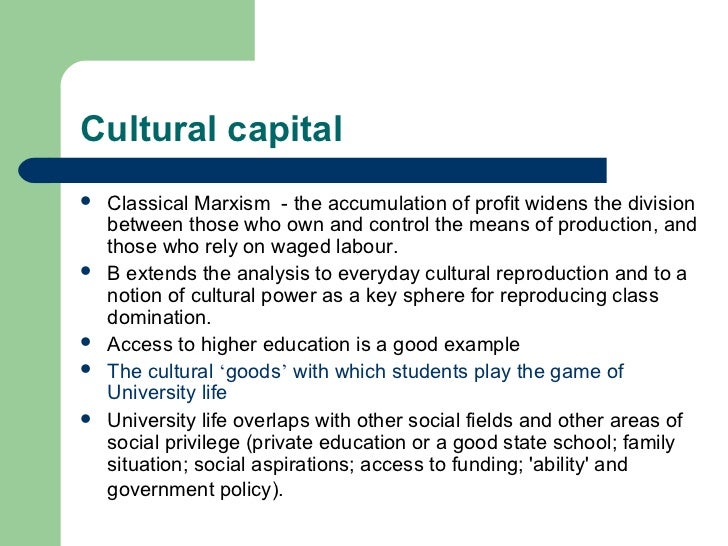
Bourdieu, Pierre Structure and Agency
253-272 Published: 05 April 2018 Annotate Cite Permissions Share Abstract Decades after the publication of his key works, Pierre Bourdieu's sociology of education remains the object of persistent misunderstanding. A coherent account of this work must distinguish, at minimum, two phases to Bourdieu's thoughts on education.
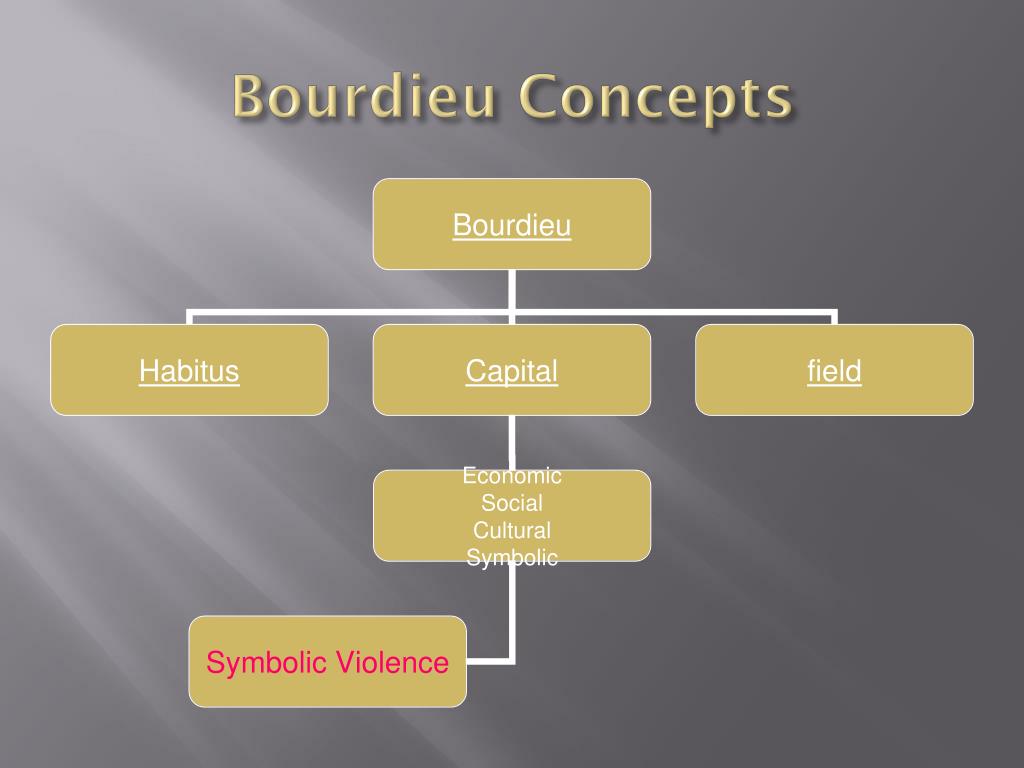
PPT Pierre Bourdieu Cultural and Symbolic Capital PowerPoint Presentation ID3085150
In this chapter Pierre Bourdieu's 'Theory of Practice' is introduced as the methodological framework of this book. It serves as the theoretical basis on which the interrelation between ICH, sustainable development, and human development is conceptualised. This enables the elaboration of a model for the valorisation of ICH in the following.
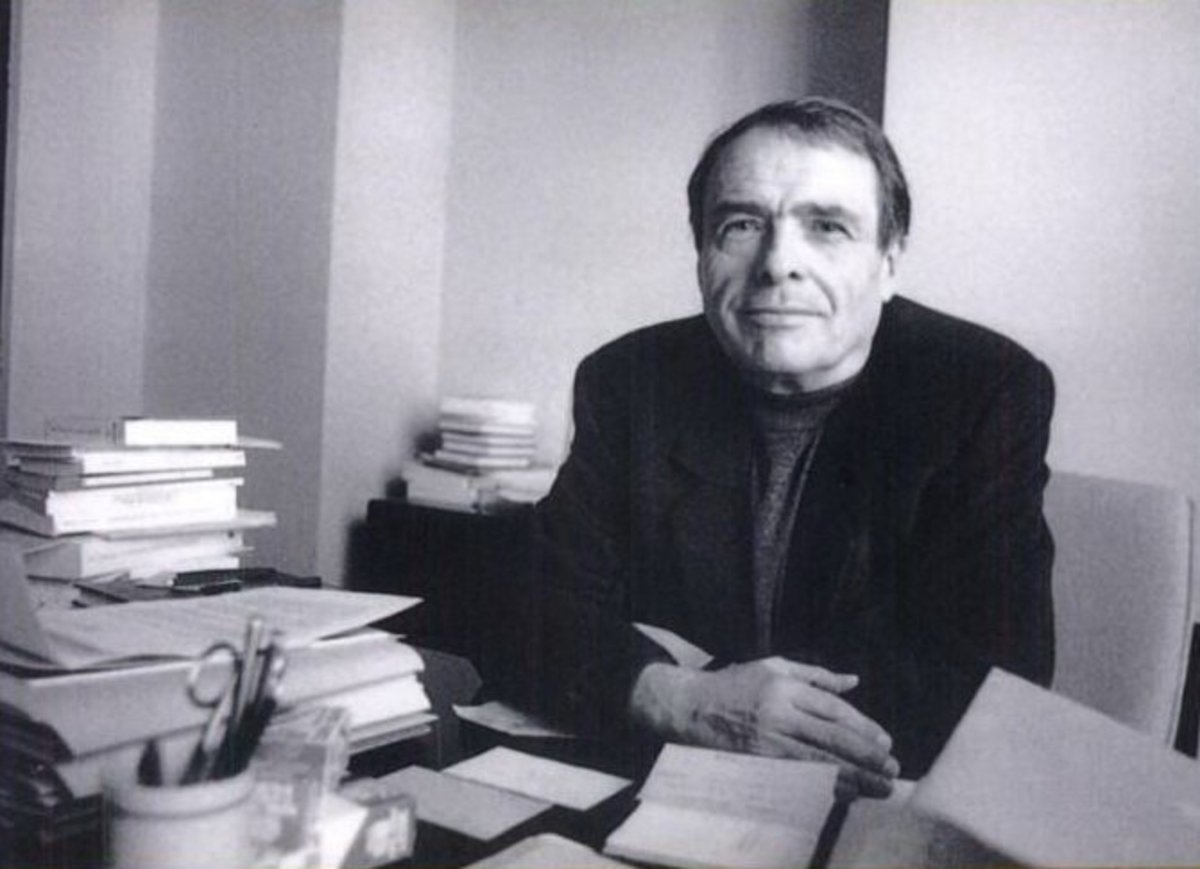
Understanding PostStructuralism and Pierre Bourdieu Some Key Concepts HubPages
Pierre Bourdieu (1930-2002) was a French sociologist and public intellectual, which means that he was recognised for his contributions to public/current affairs as well as more traditional academic endeavours.

Bourdieu's theoretical framework of capital and perceived parental... Download Scientific Diagram
Pierre Bourdieu's theory of social and cultural reproduction is one of the most prominent attempts to explain the intergenerational persistence of social inequality. Bourdieu contended that the formal education system is a primary mechanism in the perpetuation of socioeconomic inequality,.

Figure 1.2 from Introduction to Pierre Bourdieu's social fields Semantic Scholar
Pierre Bourdieu is perhaps the strongest voice in sociological writings, other than Bernstein, to have rearticulated the question of culture and its meaning in the stratification of society. He has developed the concepts of 'cultural capital,' 'fields,' and 'habitus.'
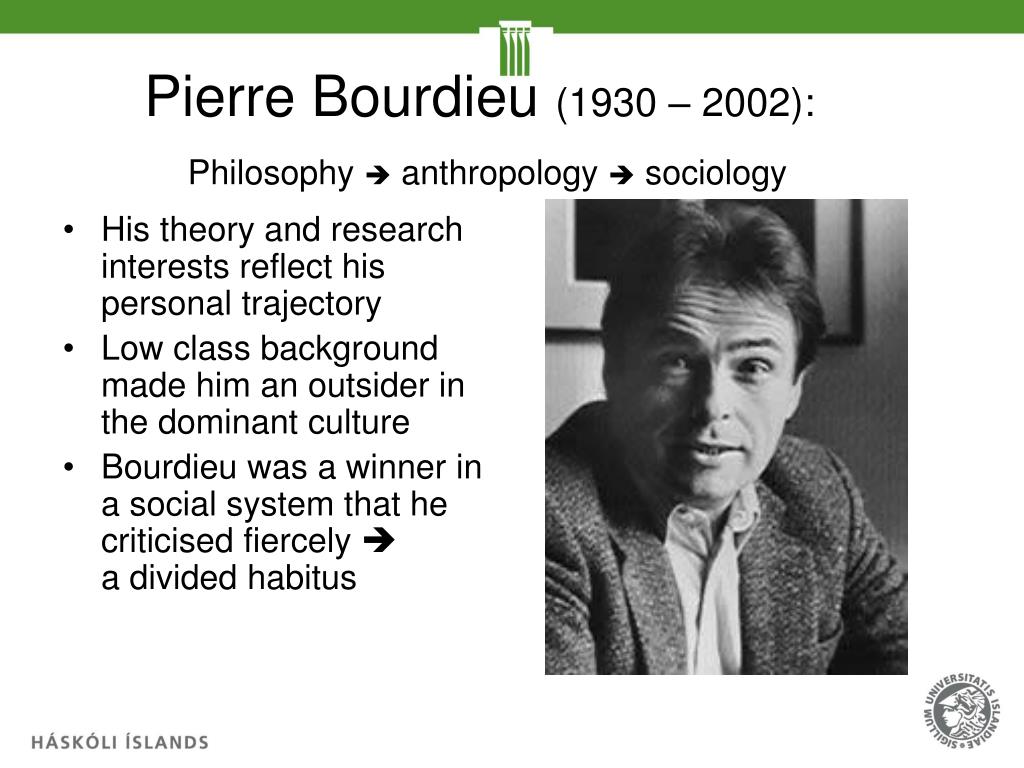
PPT The relevance of Pierre Bourdieu within guidance PowerPoint Presentation ID6201278
Abstract. This study is a critical review aimed at assessing the reception received in bibliometric research by the theories and concepts developed by the sociologist Pierre Bourdieu. The data set consists of 182 documents, including original articles, editorial material, review articles, conference papers, monographs, and doctoral dissertations. A quantitative analysis was used to establish.

Bourdieu theory of distinction ukbda
Summary. Globally the most cited sociologist today, Pierre Bourdieu laid the foundations for an enduring intellectual legacy. This chapter explores Bourdieu's legacy in terms of his career, his innovative and distinctive conceptual framework, his broad multidisciplinary appeal, his enduring contributions, and frequently voiced criticisms.

Bourdieu capital four capital in social world
Pierre Bourdieu's work emphasized how social classes, especially the ruling and intellectual classes, preserve their social privileges across generations despite the myth that contemporary post-industrial society boasts equality of opportunity and high social mobility, achieved through formal education. Life and career

la sociologie de Pierre Bourdieu YouTube
Pierre Bourdieu (1930 - 2002) was a French sociologist and public intellectual who was primarily concerned with the dynamics of power in society. His work on the sociology of culture continues to be highly influential, including his theories of social stratification that deals with status and power.

Pierre Bourdieu Concept of Habitus & Field Part2 YouTube
Pierre Bourdieu (born August 1, 1930, Denguin, France—died January 23, 2002, Paris) French sociologist who was a public intellectual in the tradition of Émile Zola and Jean-Paul Sartre. Bourdieu's concept of habitus (socially acquired dispositions) was influential in recent postmodernist humanities and social sciences.
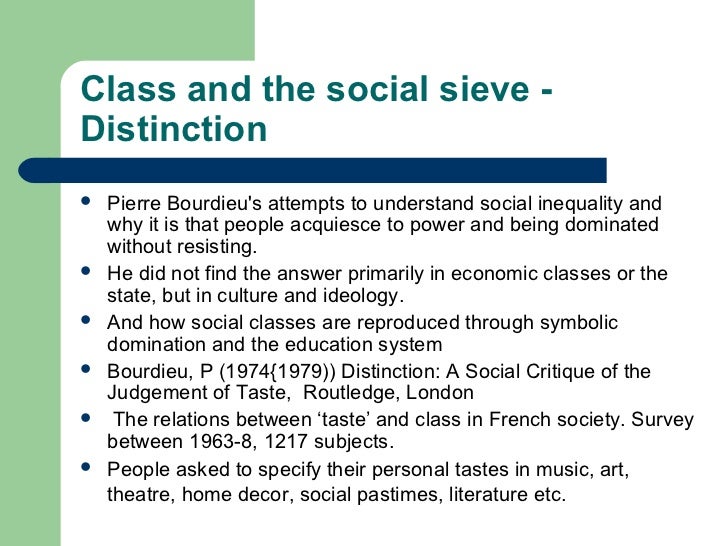
Bourdieu, Pierre Structure and Agency
Bourdieu's rising reputation as a leading social theorist landed him a position as Director of Studies at the École Pratique des Hautes Études and later, in 1981, the Chair of Sociology at the Collège de France. Bourdieu was a prolific academic writer. He published more than 25 books and over 300 articles and essays over his career.

Pierre Bourdieu Alchetron, The Free Social Encyclopedia
Introduction. The concept of field is being used more and more today in North American sociology as well as in Europe. There are three major and distinct if overlapping variants of field theory in the social sciences: the social-psychological perspective associated with the psychologist Kurt Lewin, the stratification and domination emphasis in Pierre Bourdieu's sociology, and the.
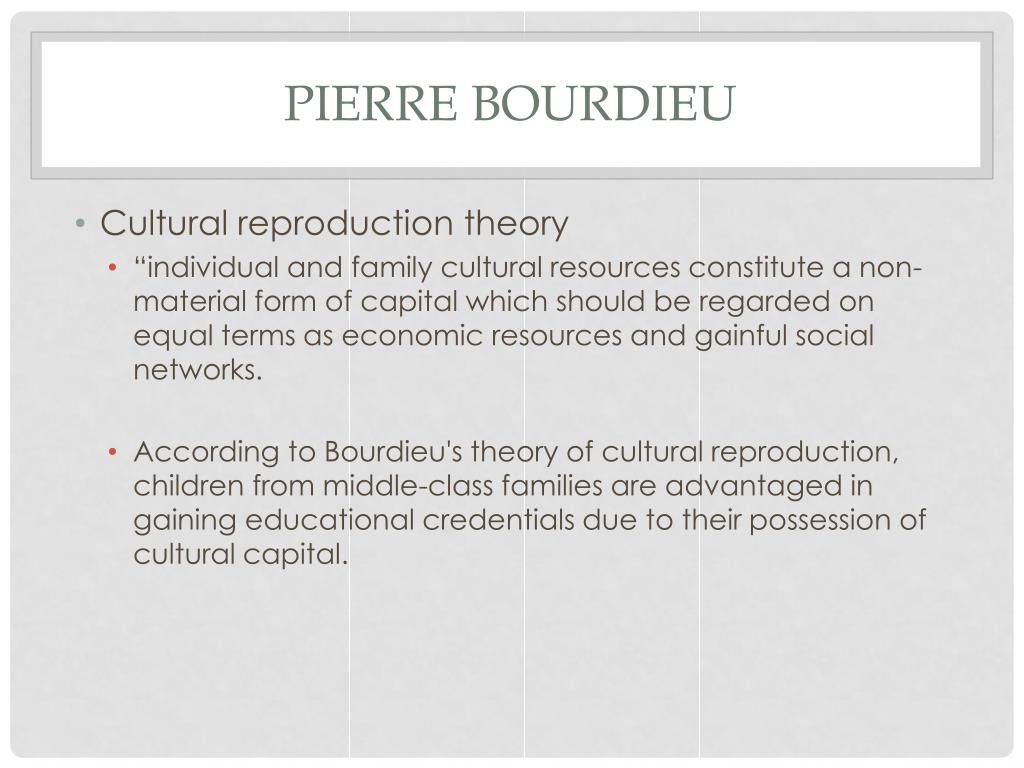
PPT Social and Cultural Capital PowerPoint Presentation, free download ID2503257
In the present monograph, we aim to discuss the term social capital from its roots, and thus this chapter introduces first Bourdieu's concept and then Coleman's. We discuss both concepts critically and draw a conclusion about which features are important for a social capital theory. Keywords. Social Capital; Cultural Capital; Economic Capital